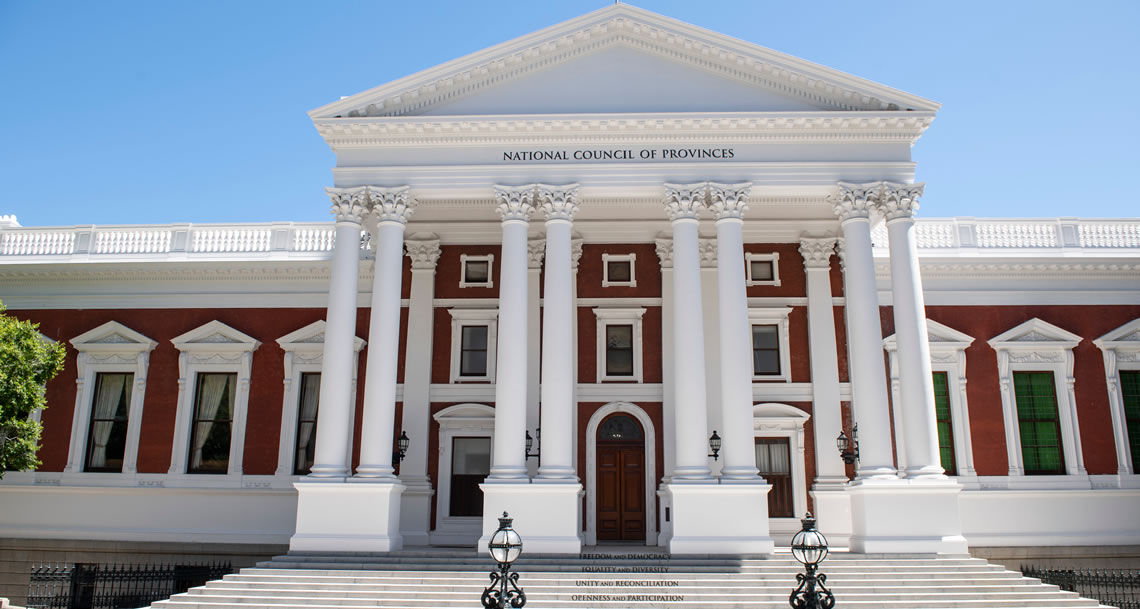
First Session of the National Council of Provinces The inaugural session of the National Council of Provinces (NCOP) of South Africa took place on 15 May 1997, following the adoption of the new Constitution. The NCOP is the upper house of the South African Parliament, representing the nine provinces of the country. Agenda and Proceedings: The first session was presided over by G.J. Kotze, the Chairperson of the Constitutional Assembly. The agenda included: * The adoption of standing orders and rules of debate * The election of the Speaker and Deputy Speaker * The tabling of the President’s address * The formation of committees Election of Office Bearers: * Speaker: Edna Molewa (African National Congress) * Deputy Speaker: Godi Matamela (African National Congress) President’s Address: President Nelson Mandela delivered an address to the NCOP, outlining the government’s vision for the new parliament and emphasizing the importance of cooperation and collaboration between the two houses. He stated: > “The National Council of Provinces will be a crucial forum for engaging with the provinces and ensuring that their voices are heard in the national legislative process. It will also play a vital role in promoting intergovernmental cooperation and in fostering a spirit of unity and nationhood.” Formation of Committees: The NCOP established a range of committees, including: * Select Committee on Constitutional Affairs * Select Committee on Economic and Business Development * Select Committee on Finance * Select Committee on Health and Social Services * Select Committee on Land and Environmental Affairs Significance: The first session of the NCOP marked a significant milestone in the democratic transition of South Africa. It established a new institution tasked with representing the interests of the provinces and fostering intergovernmental cooperation. The NCOP has since played a crucial role in shaping legislation, scrutinizing government policies, and promoting accountability and transparency.The National Council of Provinces (NCOP) convened its inaugural session on Saturday to elect presiding officers. Chief Justice Raymond Zondo officiated the swearing-in ceremony of 54 permanent delegates.The National Council of Provinces (NCOP) convened its inaugural session on Saturday to elect presiding officers. Chief Justice Raymond Zondo officiated the swearing-in ceremony of 54 permanent delegates. The House elects a Speaker, Deputy Speaker, and House Whip. The permanent delegates will be joined by non-permanent representatives from the provinces, bringing the total membership to 90. Only four members returned to the House from the previous term. Several MPs who served in the National Assembly have transitioned to the NCOP. Notably, delegates from the MK Party, who were absent from the National Assembly session on Friday, attended the NCOP ceremony.
First Session of the National Council of Provinces The National Council of Provinces (NCOP) commenced its first session of the sixth Parliament on Tuesday, with the election of its Presiding Officers. Former Premier of the Northern Cape, Ms Sylvia Lucas, was elected Chairperson of the NCOP, while former Deputy Minister of Cooperative Governance and Traditional Affairs, Mr Obed Bapela, was elected Deputy Chairperson. In her acceptance speech, Ms Lucas emphasized the importance of cooperative governance and intergovernmental relations. She highlighted the need to strengthen partnerships between the national, provincial, and local spheres of government to address the challenges facing the country. Mr Bapela, in his remarks, stressed the importance of the NCOP’s role in representing the interests of the provinces. He emphasized the need for the Council to be a platform for dialogue, consensus-building, and the promotion of cooperative governance. The session also saw the swearing-in of new members of the NCOP. The Council is composed of 90 members, with each province represented by 10 delegates. These delegates include premiers, members of provincial legislatures, and other representatives appointed by the President. The NCOP’s mandate is to represent the interests of the provinces in the national Parliament, to facilitate intergovernmental relations, and to ensure that provincial interests are taken into account in national legislation. The Council also has the power to review national legislation and to initiate constitutional amendments. The first session of the NCOP will conclude on Thursday, with the Council expected to adopt its annual program of work and to consider a number of legislative matters.
Posted inNews